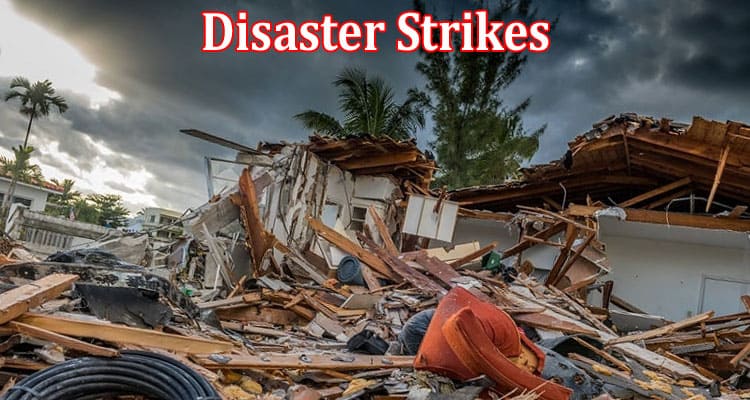When Disaster Strikes: Dealing With Common Home Emergencies
Nobody plans for disaster to strike their home. But unfortunately, house fires, floods, and other disasters can happen without warning—leaving your family scrambling for ways to cope and get help. It’s important to plan ahead so that you know how to react when a disaster occurs in or around your home.
In this post, we’ll cover the basics of dealing with common emergencies like fires, floods, storms, and major power outages. You will also find helpful tips on safety measures you can take now in order to be prepared if an emergency were ever to occur in or near your residence.
Fire
When it comes to home emergencies, fires are one of the most serious threats that homeowners can face. They can start from a variety of causes, such as cooking accidents or electrical malfunctions, and spread quickly if not contained. In addition to the risk of property damage, fires also pose a significant danger to human life.
To minimize the risk of a home fire, it’s important to take preventative measures, such as properly maintaining electrical appliances and keeping flammable materials away from heat sources. It’s also crucial to have working smoke detectors and an emergency escape plan in place in case of a fire. By being informed and prepared, homeowners can help protect their homes and families from the devastating effects of a fire.
Flooding
Flooding is a common home emergency that can happen due to a variety of reasons. Heavy rainfall can quickly turn into a nightmare for homeowners if the water isn’t drained away fast enough. Plumbing issues can also cause flooding, especially if a pipe bursts or a drain is blocked.
Natural disasters, such as hurricanes or tornadoes, can lead to flash floods that can hit homes unexpectedly. The aftermath of a flood can be devastating; not only is the damage caused by the water extensive but the aftermath can also lead to mold growth and further issues if not addressed immediately.
Homeowners can take preventative measures to reduce the risk of a flood, but when they do occur, it’s important to act quickly to minimize damage.
Power outage
Power outages can be a real hassle. No one likes to sit in the dark, unable to turn on the lights or charge their phone. But did you know that there is a solution? Installing a home battery can help keep the lights on during a power outage. With a home battery, you’ll have a backup power supply that kicks in when the electricity goes out.
This can be a lifesaver, particularly during severe weather or other emergencies. So, don’t let a power failure catch you off guard. Consider investing in a home battery to keep your household up and running, even when the lights go out.
Gas leaks
Gas leaks can pose a serious risk to both our health and homes. These leaks are often caused by faulty appliances or damaged gas lines, which can lead to dangerous fire hazards and health risks if left unaddressed. The warning signs of a gas leak might be hard to detect – a ‘rotten egg’ smell, a hissing sound, or even a steady flow of gas.
Remember to act quickly and safely if you detect a gas leak. Turn off the main gas supply valve, open all the windows and doors, evacuate the house immediately, and call a professional gas technician. Taking prompt action can prevent any significant damage, saving lives and property.
Plumbing emergencies
Plumbing emergencies can be a homeowner’s worst nightmare. Burst pipes, clogged drains, and leaking fixtures can lead to water damage, flooding, and even the disruption of essential services. The good news is that many plumbing emergencies can be prevented with regular maintenance and inspection from a professional plumber.
However, if you do find yourself in the midst of a plumbing emergency, it’s important to act quickly and contact a qualified expert to remedy the situation. By taking swift action, you can minimize the damage and prevent further headaches down the line. So, if you notice any signs of a plumbing emergency, don’t hesitate to take action and protect your home from serious water damage.
Structural damage
One of the most serious forms of home disaster is structural damage, which can occur as a result of natural disasters like earthquakes and storms, or accidents like fires. Structural damage can be catastrophic and may cause a home to become unlivable until the necessary repairs are made.
In extreme cases, entire structures may need to be rebuilt. Recognizing the signs of structural damage is key to protecting the safety of yourself and your family, so be sure to stay vigilant and take action if you suspect that your home has been compromised.
Being prepared and knowing how to respond to these emergencies is crucial for minimizing damage, ensuring safety, and protecting your home and loved ones.




